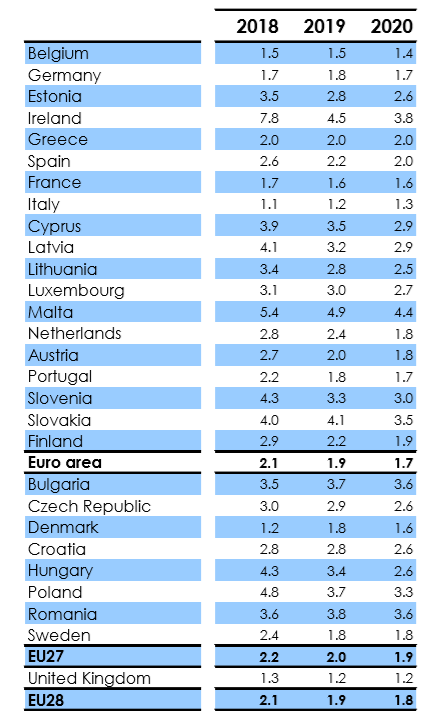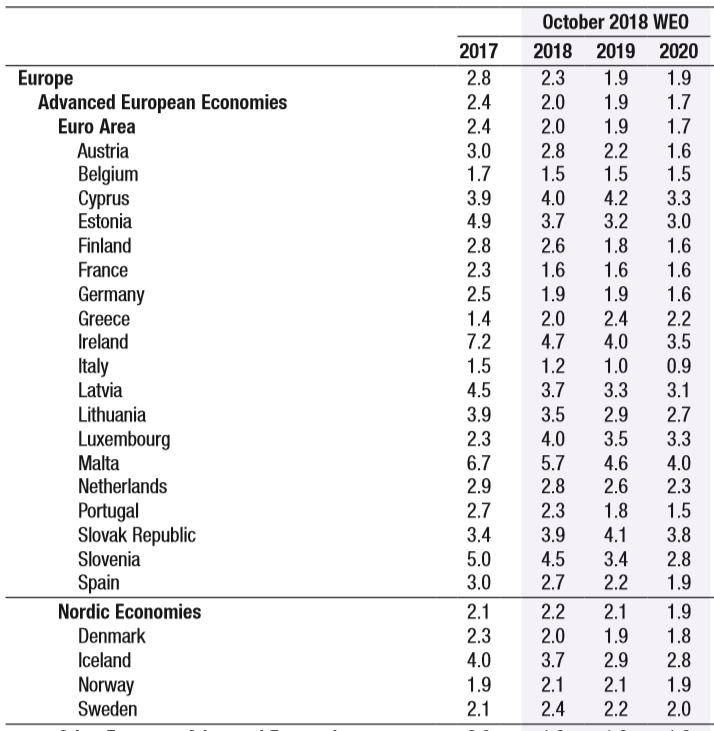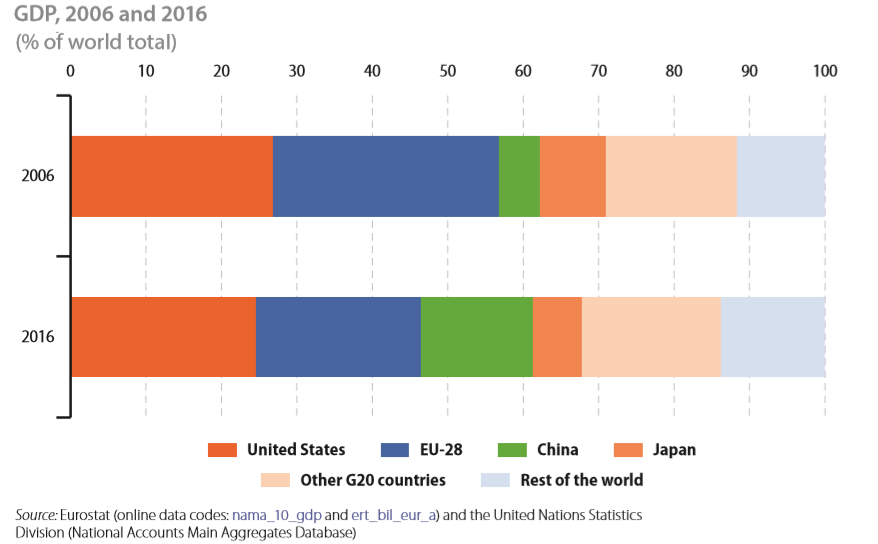Both the European Commission and the IMF recently published their forecasts on growth in Europe. Both have lowered forecasts for growth between 2018 and 2020 in Europe.
The European Union Report can be found here. It mainly states that the European economy has moved into lower gear. Here are excerpts from the report,
The EU economy is entering its sixth year of uninterrupted growth and all Member States are expected to grow over the forecast horizon. But the moderation of momentum since the start of the year and leading indicators both suggest that economic growth has peaked in 2017. The extraordinary impulse from the rebound in global growth and trade enjoyed by the European economy last year is already wearing off, as the outlook for global growth is weakening and trade tensions have risen.
The strength of Europe’s domestic growth drivers should however be sufficient to allow activity to continue growing and unemployment falling. The improving labour market, slightly stronger wage growth and expansionary fiscal measures in some Member States, should help to sustain consumption next year. In addition, investment should enjoy the continued support of still favourable financing conditions, even assuming the gradual normalisation of monetary policy. The outlook, however, is clouded by the presence of a number of interrelated downside risks.
From 2.4% in 2017, euro area GDP growth is forecast to moderate to 2.1% this year and 1.9% in 2019, slightly below the growth rate projected back in the summer. It is then expected to ease smoothly to 1.7% in 2020. Exogenous factors, such as fading world trade growth, rising uncertainty and higher oil prices should have a dampening effect on growth in general, while economic activity should also weaken as labour market improvements slow, slack diminishes, and supply side constraints become more binding in certain Member States.

The IMF report can be found here. It mainly states that the Europe is running into External Turbulence. Here are excerpts from the report,
Economic activity continued to expand in the first half of 2018, albeit at a slower-than-expected pace, mainly in advanced Europe. Domestic demand, supported by stronger employment and wages, remains the main engine of growth. However, the external environment has become less supportive and is expected to soften further in 2019 owing to slowing global demand, trade tensions, and higher energy prices. Tighter financial conditions in vulnerable emerging market economies and maturing business cycles are also weighing on activity. Accordingly, growth is projected to moderate from 2.8 percent in 2017 to 2.3 percent in 2018 and 1.9 percent in 2019. That said, it is expected to remain above potential in most countries in the region.
Risks to the outlook have increased. In the short term, escalating trade tensions and a sharp tightening in global financial conditions could undermine investment and weigh on growth. In the medium term, risks stem from delayed fiscal adjustment and structural reforms, demographic challenges, rising inequality, and declining trust in mainstream policies. Also, a “no-deal” Brexit would lead to high trade and non-trade barriers between the United Kingdom and the rest of the European Union with negative consequences for growth.

The European Union’s share of global GDP fell from 30% in 2006 to 22% in 2016. Parts of the EU have seen GDP per capita shrink and the overall compounded annual growth rate was just 1.2% between 2007 and 2017. GDP growth adjusted for inflation was negative. (Read More: Parts of the European Union have seen nominal GDP per capita fall between 2007 and 2017)

Related:
Past, present, future – some demographic and economic statistics for the European Union
Europe’s lost economic decade in charts